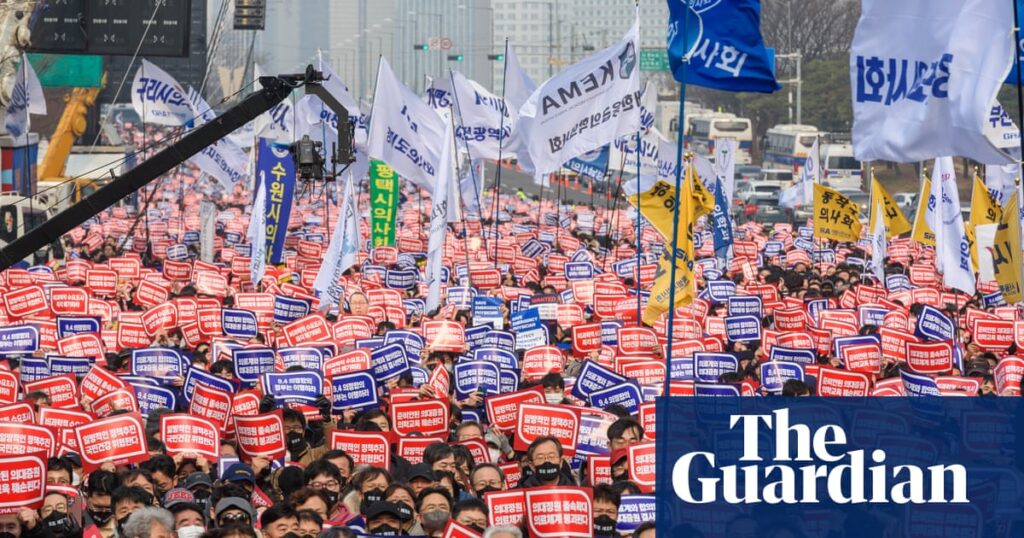South Korea's government has begun suspending the medical licenses of thousands of striking doctors amid growing concerns that the month-long conflict is affecting front-line medical services.
Approximately 12,000 doctors from 100 teaching hospitals went on strike, leading to canceled surgeries, longer wait times and delays in treatment, including for patients seeking emergency care, according to media reports.
The Ministry of Health announced that it has begun procedures that could see 4,900 of the striking doctors have their medical licenses revoked if they continue to defy orders to return to work.
The ministry also announced that it had sent an administrative notice to the strikers after being warned that they could be suspended for three months. The punishment could delay the person's ability to qualify as a professional by at least a year.
The increasingly acrimonious debate began as a protest against a government plan to significantly increase the number of medical trainees to address shortages in rural areas and increased demand for services due to South Korea's rapidly aging population.
But the 11,994 striking doctors, who represent 93% of the trainee workforce, argue that recruiting 2,000 additional students each year from 2025 will compromise the quality of their services. In return, they are asking for better pay and conditions.
The Health Ministry announced this week that it would allocate 20 military doctors and 138 public health doctors to boost staffing at some hospitals, but denied that the country's medical services were being disrupted.
Chung Byung-wan, director of the ministry's health and medical policy division, suggested that doctors who return to work will be spared punishment. “The government will consider the situation and protect trainee doctors if they return to work before the administrative measures are completed,” Chien said.
He added, “The government will not give up on dialogue. The door is always open. The government will respect and listen to the opinions of the medical community as a partner in medical reform.''
To resolve the dispute, the government last week announced improvements to trainee doctors' pay and conditions, as well as a review of the 36-hour working day, a major complaint among junior doctors. But this concession failed to appease doctors.
There are growing calls for both sides to negotiate.
“Doctors and the government are not in the boxing ring,'' Kyunghyang Shinmun said in an editorial. “People's patience is running thin…A way out of this quagmire must be found through dialogue on both sides.”
Critics of the recruitment plan accuse conservative President Yoon Seok-yeol of using health reform to boost the hopes of his People's Power Party in next month's parliamentary elections.
In a poll released by Yonhap News last week, 84% of respondents supported increasing the number of doctors hired, and 43% said doctors who went on strike should be severely punished.


